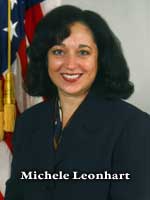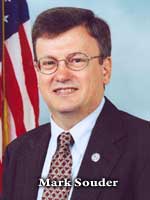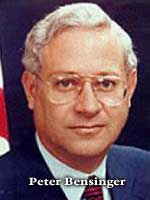[Note: This is all idle speculation. I don’t know these people personally, so I can’t be in any way sure of my analyses.]

The recent announcement of Karen P. Tandy’s departure as head of the DEA (and her move to a position with Motorola) got me thinking about the various personalities in charge of the drug war.
Some have informally suggested that a boycott of Motorola is appropriate, given Tandy’s record as head of the DEA, but I’m not so sure.
You see, I don’t think she’s a true believer or a hard core career drug warrior. I think she’s simply a not-too-bright opportunist completely lacking moral values. She was ignorant coming in to the position. Note this exchange from her confirmation hearing:
Durbin: Are you aware of information regarding the medicinal benefits of marijuana (for example: an editorial in the New England Journal of Medicine on [January] 30, 1997; the 1999 Institute of Medicine report “Marijuana and Medicine: Assessing the Science Base authorized by the White House Office of National Drug Control Policy; and the 1988 ruling from the DEA’s chief administrative law judge, Francis L. Young)?…”
Tandy: “I am not personally familiar with the sources you cite discussing the putative “medicinal benefits of marijuana…”
It appears that this lack of interest in actually knowing anything continued through her administration. I had the opportunity to have dinner with one of her assistants (also a political appointee) – a man who is sometimes sent out to talk and debate about marijuana.
We talked candidly at dinner, and I was astonished to learn that there were a number of items of common drug policy knowledge that he was lacking (for example, the fact that Bush had campaigned in favor of states’ rights regarding medical marijuana, or that Marinol can get you high). For his part, he merely saw it as a temporary job, and cared to learn just enough to do what was necessary. He wasn’t interested in the kind of extensive research that we do on a daily basis.
I suspect that any additional knowledge Karen Tandy has upon leaving the DEA she obtained by accident– and that most of her “expertise” was simply provided by career staff and speechwriters. I think her knack was the ability to unquestioningly follow the administration’s line and spout the “correct” talking points. This is probably what makes her attractive to Motorola. As someone with international connections because of her position with the DEA, and no moral compunctions or annoying tendencies to think, she’s a perfect tool.
Sure, she’ll probably be trotted out on some occasions to speak in favor of the drug war due to her status as past DEA head, but I doubt we’ll hear much from her anymore.

Tandy’s deputy, Michele Leonhart, who will most likely be put forth as head of the DEA is, in some ways, more troublesome. A career DEA agent, who finds nothing particularly wrong with lying… in court!…
“The only criticism (of Chambers) I’ve ever heard is what defense attorneys will characterize as perjury or a lie on the stand.”
She sees the drug war not as a temporary career advancement, but rather sees the long term power of the DEA as a good unto itself.
So how do you categorize other drug war leaders?
One that has fascinated me for some time is Andrea Barthwell. She joined the ONDCP in late 2001 as Deputy Director for Demand Reduction. I had a conversation with a treatment professional who knew her prior to her ONDCP days and thought highly of her. In fact, Andrea herself claimed that she was unhappy with the Bush administration’s focus on enforcement and was hoping to use her position in the ONDCP to advocate for more focus on treatment.
 But being deputy drug czar appeared to have turned her completely to the dark side. Rather than pushing for treatment, she spent most of her time in the position extolling the evils of marijuana and pushing for drug testing. Upon leaving, her dementia seemed to deepen. Rather than pursuing a “respectable” career in the treatment field, she has pursued one hair-brained scheme after another, from her Illinois Marijuana Lectures organization (which I stopped) to promoting liquid marijuana in the pay of Sativex, to attempting to run for senate, to her con game pushing false data regarding drunk driving (which I also exposed)…
But being deputy drug czar appeared to have turned her completely to the dark side. Rather than pushing for treatment, she spent most of her time in the position extolling the evils of marijuana and pushing for drug testing. Upon leaving, her dementia seemed to deepen. Rather than pursuing a “respectable” career in the treatment field, she has pursued one hair-brained scheme after another, from her Illinois Marijuana Lectures organization (which I stopped) to promoting liquid marijuana in the pay of Sativex, to attempting to run for senate, to her con game pushing false data regarding drunk driving (which I also exposed)…
Now, Barthwell is apparently promoting some new kind of junk science treatment scheme, but she’s having a harder time getting a properly supportive audience for her nonsense. As the Windy City Times reports:
Another attendee said that the whole presentation seemed like ‹a major sales job.Š He also told Barthwell that he felt that her ‹explanation of addiction was very naive. … ” […] Windy City Times asked CCMTF‰s Jim Pickett what he thought of the presentationÖand he was not impressed. ‹I want scienceÖand most of us in the community want science before we start advocating for a treatment,Š he said. ‹I think it‰s irresponsible that they‰re pushing forward with such little science…”
The Tandys and Barthwells of this world can do a lot of damage in a short amount of time, and need to be watched closely while they’re in power, but, in the long term, they are less of a concern than the lifetime career drug warriors.




Certainly the ones who come most to mind are the current villains like John Walters and Mark Souder, and some of the ongoing heirs to the Anslinger legend, like William Bennett and Peter Bensinger. These are individuals who have decided that the drug war (and related culture wars) are something to build a lifetime around. They have decided that the rest of the world is incapable of living “correctly,” and so will do anything from lying to sacrificing innocents for their power trip. They base it around a false concept of morality to justify the immoral actions they take. For the most part, they know full well that they are living a lie, but find that fully acceptable (although it’s possible, in the case of warriors like Souder that there is also a bit of self-delusion going on).
_______
So, do I have a point in this post? Not sure.
I have, in recent years, come to the firm belief that any responsible individual faced with enough facts about the drug war must inescapably come to the conclusion that the drug war is wrong. Period. So I find a somewhat morbid fascination in trying to understand those who are in a position to know enough to oppose the drug war, yet support it anyway.
It may not be an analysis that will provide any practical use — after all, our task is not to change those knowledgeable, yet corrupt, drug war supporters. It is, rather, our job to get the vast majority who do not know enough up to speed, so they can oppose it. Still, knowledge and questioning is always good.
What do you think drives drug war administrators?

